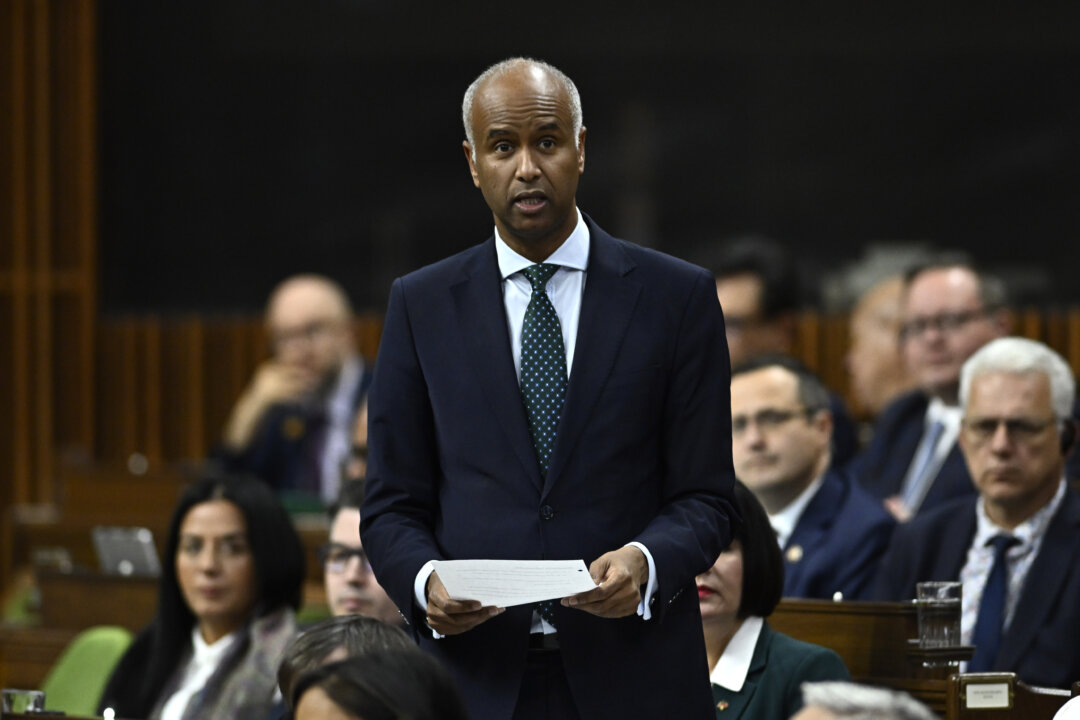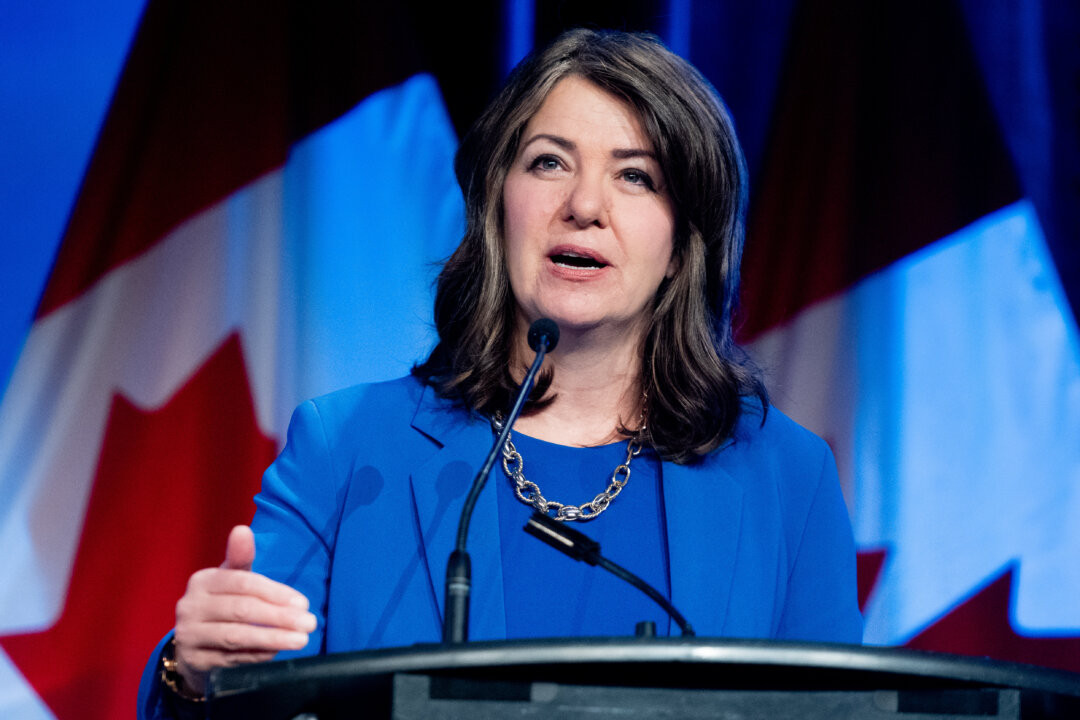CAIRO—Israeli troops seized control of Gaza’s vital Rafah border crossing on Tuesday in what the White House described as a limited operation, as fears mount of a full-scale invasion of the southern city and talks with Hamas terrorists over a cease-fire and hostage release remain on a knife’s edge.
The U.N. warned of a potential collapse of the flow of aid to Palestinians from the closure the Rafah crossing from Egypt and the other main crossing into Gaza, Kerem Shalom, from Israel, at a time when U.N. officials say northern Gaza is experiencing “full-blown famine.”
The Israeli foray overnight came after hours of whiplash in the now 7-month-old Israel–Hamas war, with the terrorist group saying Monday it accepted a cease-fire proposal that Israel insisted fell short of its own core demands.
The high-stakes diplomatic moves and military brinkmanship left a glimmer of hope alive for a deal to bring at least a pause in the war, which has killed more than 34,700 Palestinians, according to local health officials, and has devastated the Gaza Strip.
The Rafah and Kerem Shalom crossings are critical entry points for food, medicine and other supplies for Gaza’s 2.3 million people. They have been closed for at least the past two days, though the smaller Erez crossing between Israel and northern Gaza continues to operate.
By capturing the Rafah crossing, Israel gained full control over the entry and exit of people and goods for the first time since it withdrew soldiers and settlers from Gaza in 2005, though it has long maintained a blockade of the coastal enclave in cooperation with Egypt.
Israeli Prime Minister Benjamin Netanyahu called the capture of the crossing an “important step” toward dismantling Hamas’ military and governing capabilities, and Defense Minister Yoav Gallant said Israel would “deepen” the Rafah operation if talks on the hostage deal failed.
Osama Hamdan, a Hamas official based in Beirut, said the terrorist group would not respond to military pressure or threats and would not accept any “occupying force” at the Rafah crossing.
White House National Security Council spokesman John Kirby said the operation along the Gaza-Egypt border in eastern Rafah was not a full-on Israeli invasion of the city that President Joe Biden has repeatedly warned against on humanitarian grounds. Mr. Kirby said Israel described it as “an operation of limited scale and duration” aimed at cutting off Hamas arms smuggling.
Mr. Kirby also expressed optimism about the negotiations, saying Israel and Hamas “should be able to close the remaining gaps” to complete an agreement. He said CIA chief William Burns will attend further talks in Cairo with representatives from Israel, Egypt, and Qatar. Hamas also sent a delegation to Cairo, which will meet separately with the Arab mediators.
“Everybody is coming to the table,” Mr. Kirby said.
Fighting forced the evacuation of the Abu Youssef al-Najjar Hospital, one of the main medical centers receiving people wounded in airstrikes on Rafah in recent weeks. It was not immediately clear how many patients were moved to other facilities.
The looming operation threatens to widen a rift between Israel and its main backer, the United States, which says it is concerned over the fate of around 1.3 million Palestinians crammed into Rafah, most of whom fled fighting elsewhere.
President Biden warned Mr. Netanyahu again Monday against launching an invasion of the city after Israel ordered 100,000 Palestinians to evacuate parts of Rafah.
Israel’s 401st Brigade took “operational control” of the Gaza side of the Rafah crossing early Tuesday, the military said. Military footage showed Israeli flags flying from tanks in the area. It also said troops and airstrikes targeted suspected Hamas positions in Rafah.
The military claimed it had intelligence the crossing was “being used for terrorist purposes,” though it did not immediately provide evidence. It said Hamas terrorists near the crossing launched a mortar attack that killed four Israeli troops near Kerem Shalom on Sunday and that more mortars and rockets were fired from the area Tuesday.
Israeli authorities denied the U.N. humanitarian affairs office access to the Rafah crossing Tuesday, said its spokesman, Jens Laerke. All fuel for aid trucks and generators comes through Rafah, and Mr. Laerke said there was a “very, very short buffer of about one day of fuel.”
Egypt’s Foreign Ministry condemned the seizure of the Rafah crossing, calling it “a dangerous escalation.”
It has previously warned that any occupation of Rafah—which is supposed to be part of a demilitarized border zone—or an attack that forces Palestinians to flee into Egypt would threaten the 1979 peace treaty with Israel that’s been a linchpin for regional security.
Mr. Netanyahu has said an offensive to take Rafah—which Israel calls Hamas’s last major stronghold in Gaza—is crucial to destroying Hamas terrorists after its October attack on southern Israel that triggered the war. Hamas and other terrorists killed some 1,200 people, mostly civilians, and took around 250 hostages.
The United States, Egypt, and Qatar have spent months trying to broker a cease-fire agreement and the release of the estimated 100 hostages and remains of 30 others still held by Hamas, which insists it will not release them unless Israel ends the war and withdraws from Gaza.
Netanyahu and other top officials have publicly rejected those demands, saying they plan to launch the offensive after any hostage release and continue until Hamas is destroyed. For now, the hostages serve as Hamas’ strongest bargaining chip and potential human shields for its leaders.
According to a copy released by Hamas, the proposal outlines a phased release of hostages alongside gradual withdrawal of Israeli troops from Gaza and ending with a “sustainable calm,” defined as a “permanent cessation of military and hostile operations.”














 English (US) ·
English (US) ·  Turkish (TR) ·
Turkish (TR) ·